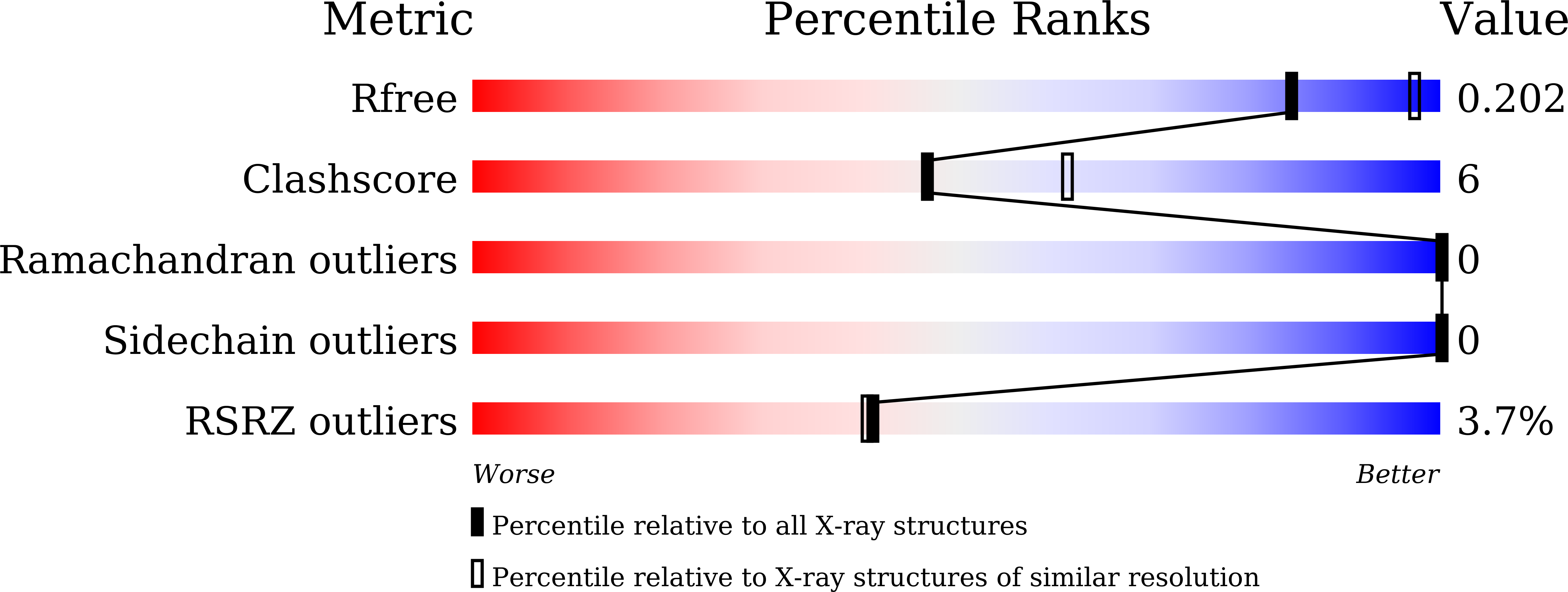Structural insights into the regulatory mechanism of the Pseudomonas aeruginosa YfiBNR system
Xu, M., Yang, X., Yang, X.-A., Zhou, L., Liu, T.-Z., Fan, Z., Jiang, T.(2016) Protein Cell 7: 403-416
- PubMed: 27113583
- DOI: https://doi.org/10.1007/s13238-016-0264-7
- Primary Citation of Related Structures:
5EAZ, 5EB0, 5EB1, 5EB2, 5EB3 - PubMed Abstract:
YfiBNR is a recently identified bis-(3'-5')-cyclic dimeric GMP (c-di-GMP) signaling system in opportunistic pathogens. It is a key regulator of biofilm formation, which is correlated with prolonged persistence of infection and antibiotic drug resistance. In response to cell stress, YfiB in the outer membrane can sequester the periplasmic protein YfiR, releasing its inhibition of YfiN on the inner membrane and thus provoking the diguanylate cyclase activity of YfiN to induce c-di-GMP production. However, the detailed regulatory mechanism remains elusive. Here, we report the crystal structures of YfiB alone and of an active mutant YfiB(L43P) complexed with YfiR with 2:2 stoichiometry. Structural analyses revealed that in contrast to the compact conformation of the dimeric YfiB alone, YfiB(L43P) adopts a stretched conformation allowing activated YfiB to penetrate the peptidoglycan (PG) layer and access YfiR. YfiB(L43P) shows a more compact PG-binding pocket and much higher PG binding affinity than wild-type YfiB, suggesting a tight correlation between PG binding and YfiB activation. In addition, our crystallographic analyses revealed that YfiR binds Vitamin B6 (VB6) or L-Trp at a YfiB-binding site and that both VB6 and L-Trp are able to reduce YfiB(L43P)-induced biofilm formation. Based on the structural and biochemical data, we propose an updated regulatory model of the YfiBNR system.
Organizational Affiliation:
National Laboratory of Biomacromolecules, Institute of Biophysics, Chinese Academy of Sciences, Beijing, 100101, China.
















